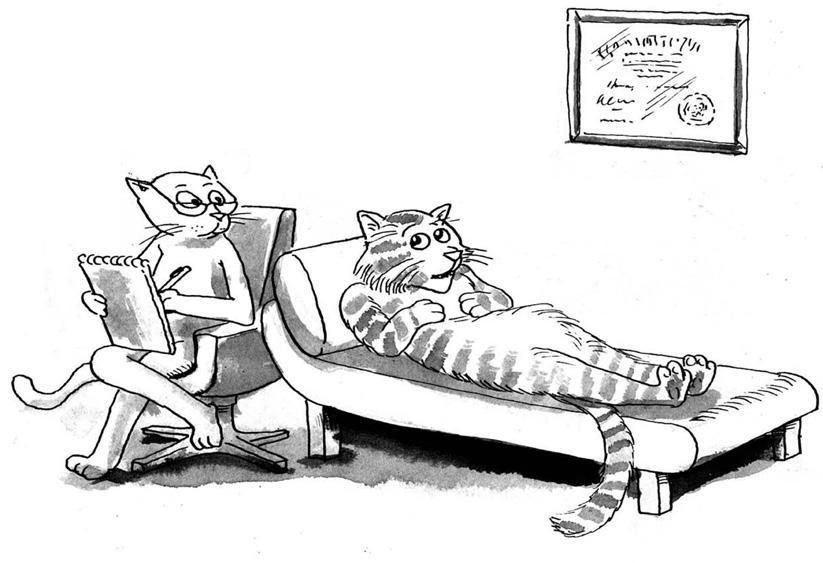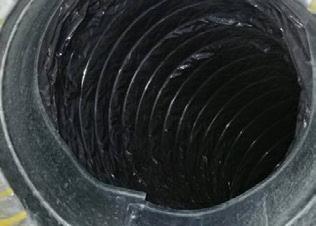
3 minute read
About the Pet Therapist
About the Pet Therapist BY JACQUELINE SAGUIN
Pets serve as lovable companions to their owners. Oftentimes, people rely on animals for both emotional and physical assistance. Take a look at the ever-present use of service dogs, emotional support animals and more. There’s no doubt that these furry friends can serve as a form of therapy. But have we ever stopped to wonder if our pets need a therapist?
There’s a variety of training options, which can include group class, private sessions or board-and-train, according to the ASPCA. Group classes cater to pets with less severe behavioral issues, teaching them basic manners and skills, socializing them with other animals. Private sessions tend to help with pets who suffer from separation anxiety or aggression toward people. They address house training, excessive barking and destructive chewing. Board-and-train is a more intensive approach that requires leaving your pet with a trainer for a certain period of time. Some specialists can help treat issues like fear, aggression, excessive barking, meowing and other specific obedience behaviors. Assess your pets needs to figure out what works best for them.
It’s in the high-pitched whines, cornered barks and plucked feathers. Like humans, pets struggle with anxiousness and phobias. Behavioral patterns may be confused as random accidents. However, incessant behaviors can be linked to greater issues like separation anxiety or even depression. If your pet is experiencing the following symptoms, it may be time to take them to a therapist, according to Pets WebMD:
Restlessness Inappropriate chewing Excessive self-grooming Excessive howling and whining Indoor “accidents” even when housebroken
It's unsure what the exact cause might be. It could be a change in routine or environment or being left alone, but it's best to seek out professional help if you’re noticing these behaviors. Pet trainers fall under an umbrella of titles, “behavior counselor,” “pet psychologist” and “pet therapist” —
among others. The level of education varies upon trainer, so be sure to do your research in finding someone who works best for you and your pet.
PRO TIP Find someone certified with a respected organization. This typically means they were trained with proper education in the field.
An applied animal behaviorist requires more intense training than a standard trainer — usually a degree and a minimum of two years’ experience in the field, according to the American Kennel Club. They tend to have expertise in behavior modification techniques and behavior recognition and can counsel people to improve the owner-pet relationship. Certified animal behaviorists can specialize in dogs and cats, but some also work with other companions like farm animals, wild animals or even zoo animals. So, whatever it may be, bird, horse, dog or cat, there’s a support system for your pet somewhere.
Here’s some more tips and tricks, courtesy of the American Kennel Club, that you can do at home to help keep your pet calm.
REWARDS Relieve your pet’s anxiety of you leaving the house by offering treats once they enter stress mode. Counter their reaction by offering a bone, toy or something else they like. Make sure they have easy access to their bed, blanket or whatever makes them most comfortable.
MEDICATION OR NATURAL SUPPLEMENTS No two pets are the same. It may be necessary to consult your veterinarian on what medication options are available for your pet that can help treat more severe causes like depression or panic disorders. Remedies like chamomile are safe and effective in easing your pet’s anxieties, restoring a sense of calm. Consult with a veterinarian beforehand to learn the dosage safest for your pet.
With the right help, you’ll have a happier pet and even happier owner.
FOR MORE INFORMATION Visit the American Kennel Club at akc.org/expert-advice/ lifestyle/what-is-an-animal-behaviorist/

AIR AS IT SHOULD BE.

BEFORE
AFTER

CLEAN, PURE AND SAFE.
• Air duct cleaning can get rid of dust mites and reduce allergies
• Cleaning your air ducts can reduce air pollution in your home
• Air duct cleaning increases the efficiency of your HVAC system
• Air duct cleaning refreshes a home you’re buying or selling
$75 DISCOUNT WHEN YOU MENTION THIS AD AT THE TIME OF ESTIMATE!










